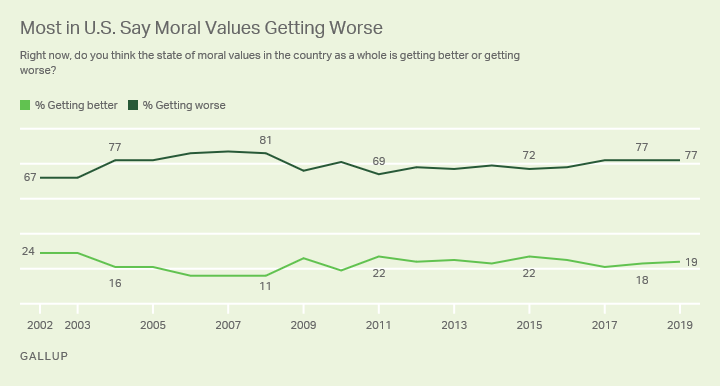Will Blakely & Kurt Gray
Moral Understanding Substack
Originally posted 21 FEB 23
No one likes polarization. According to a recent poll, 93% of Americans say it is important to reduce the country's current divides, including two-thirds who say it is very important to do so. In a recent Five-Thirty-Eight poll, out of a list of 20 issues, polarization ranked third on a list of the most important issues facing America. Which is… puzzling.
The puzzle is this: How can we be so divided if no one wants to be? Who are the hypocrites causing division and hatred while paying lip service to compromise and tolerance?
If you ask everyday Americans, they’ve got their answer. It’s the elites. Tucker Carlson, AOC, Donald Trump, and MSNBC. While these actors certainly are polarizing, it takes two to tango. We, the people, share some of the blame too. Even us, writing this newsletter, and even you, dear reader.
But this leaves us with a tricky question, why would we contribute to a divide that we can’t stand? To answer this question, we need to understand the biases and motivations that influence how we answer the question, “Who’s at fault here?” And more importantly, we need to understand the strategies that can get us out of conflict.
The Blame Game
The Blame Game comes in two flavors: either/or. Adam or Eve, Will Smith or Chris Rock, Amber Heard or Jonny Depp. When assigning blame in bad situations, our minds are dramatic. Psychology studies show that we tend to assign 100% of the blame to the person we see as the aggressor, and 0% to the side we see as the victim. So, what happens when all the people who are against polarization assign blame for polarization? You guessed it. They give 100% of the blame to the opposing party and 0% to their own. They “morally typecast” themselves as 100% the victim of polarization and the other side as 100% the perpetrator.
We call this moral “typecasting” because people’s minds firmly cast others into roles of victim and victimizer in the same way that actors get typecasted in certain roles. In the world of politics, if you’re a Democrat, you cast Republicans as victimizers, as consistently as Hollywood directors cast Kevin Hart as comic relief and Danny Trejo as a laconic villain.
But why do we rush to this all-or-nothing approach when the world is certainly more complicated? It’s because our brains love simplicity. In the realm of blame, we want one simple cause. In his recent book, “Complicit” Max Bazerman, professor at Harvard Business School, illustrated just how widespread this “monocausality bias” is. Bazerman gave a group of business executives the opportunity to allocate blame after reviewing a case of business fraud. 62 of the 78 business leaders wrote only one cause. Despite being given ample time and a myriad set of potential causes, these executives intuitively reached for their Ockham’s razor. In the same way, we all rush to blame a sputtering economy on the president, a loss on a kicker’s missed field goal, or polarization on the other side.


